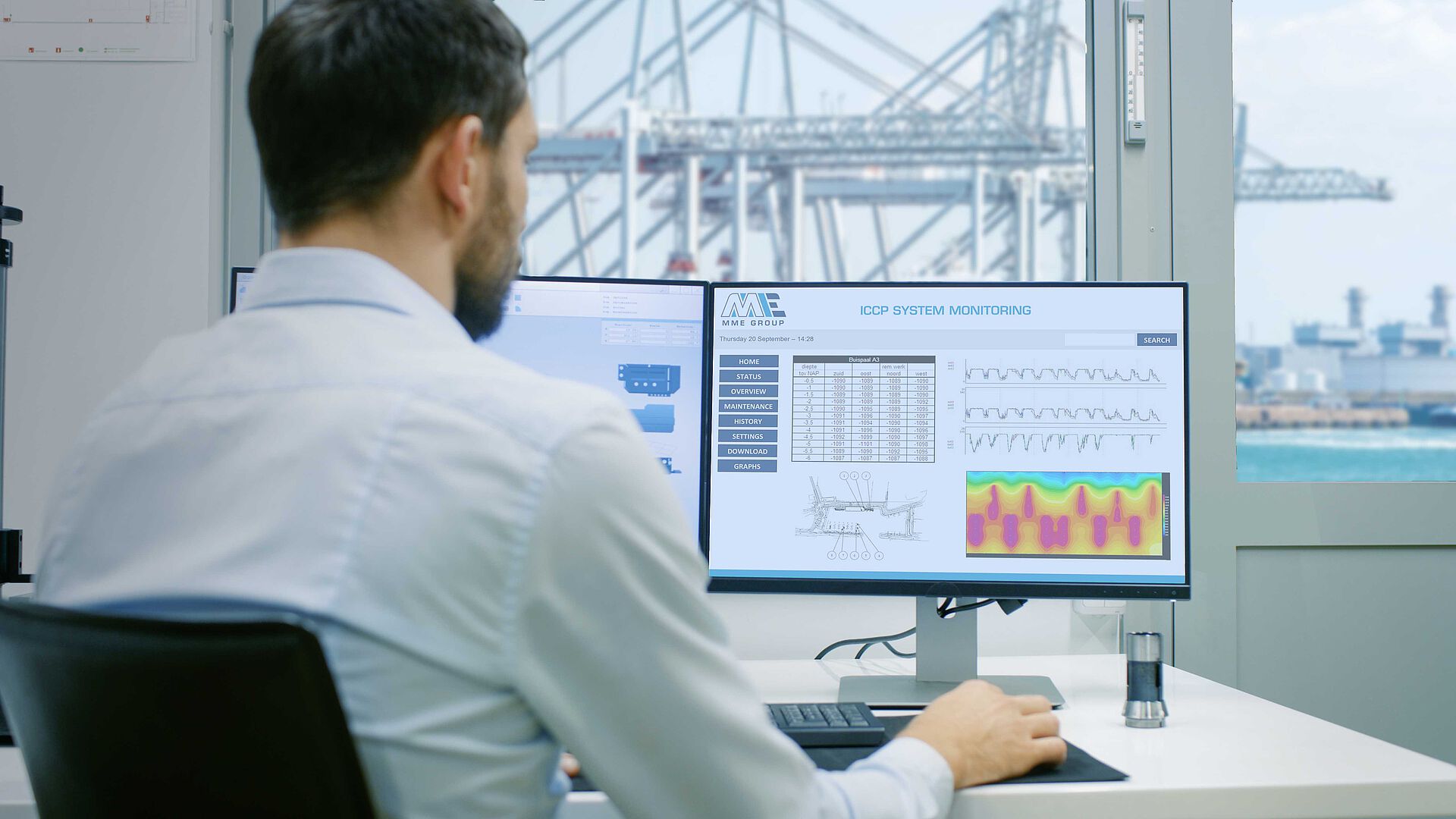

Impressed Current Cathodic Protection (ICCP) systems consist of one or more reference electrodes and several ICCP anodes which are all connected to a power unit. The reference cells measure the underwater electrical protection potential and based on this data, the power unit regulates the required output to the anodes. The controller has a self-testing and calibrating microprocessor with Modbus RS-485 interface. System fault alarm trough indication LEDs, LCD screen and Modbus protocol.
| General | |
| Article code | Power unit 150 A |
| Description | ICCP Systems |
| Mounting type | Wall mounted |
| Total weight (kg) | About 57 kg |
| Cabinet dimensions (mm) | 800x600x254 |
| Door hinge | Right side |
| Color | RAL 7035 |
| IP class | IP 54 |
| Output | 150A |
Impressed Current Cathodic Protection (ICCP) systems consist of one or more reference electrodes and several ICCP anodes which are all connected to a power unit. The reference cells measure the underwater electrical protection potential and based on this data, the power unit regulates the required output to the anodes. The controller has a self-testing and calibrating microprocessor with Modbus RS-485 interface. System fault alarm trough indication LEDs, LCD screen and Modbus protocol.
| General | |
| Article code | Power unit 80A |
| Description | ICCP Systems |
| Mounting type | Wall mounted |
| Total weight (kg) | About 24 kg |
| Cabinet dimensions (mm) | 500x400x250 |
| Door hinge | Right side |
| Color | RAL 7035 |
| IP class | IP 54 |
| Output | 80A |
Contact us if you have questions or wish to receive a quotation
Objects protected by our ICCP systems include:
Seagoing vessels (all ship types)
Offshore platforms and rigs
Offshore Wind Farms (OWF)
Harbour quay walls
Jetties, docks and piers
Locks and floodgates
Pipelines
Other steel structures that are immersed in water
The quality and reliability of MME Group ICCP systems is confirmed by decades of flawless operation of more than 1100 systems installed on ships and other marine objects all over the world.
MME Group ICCP systems are engineered and manufactured at our head office production location in The Netherlands.
Aluminium has a higher potential difference with other metals than zinc. We recommend aluminium anodes in fresh water because fresh water has a higher electrical resistance than salt water. In saltwater, both aluminum and zinc anodes are suitable.
The number and size of anodes required for sufficient protection depends on the size of the vessel or structure. If necessary, we can create a tailored anode plan for you. Contact us for more information.
All zinc and aluminium MME Group anodes are produced in our fully owned ISO 9001 certified anode foundry which is located in Faversham (UK). Most anode types are kept in stock in our warehouse in the Rotterdam area which makes it possible to deliver to almost any location in Europe within a few days.